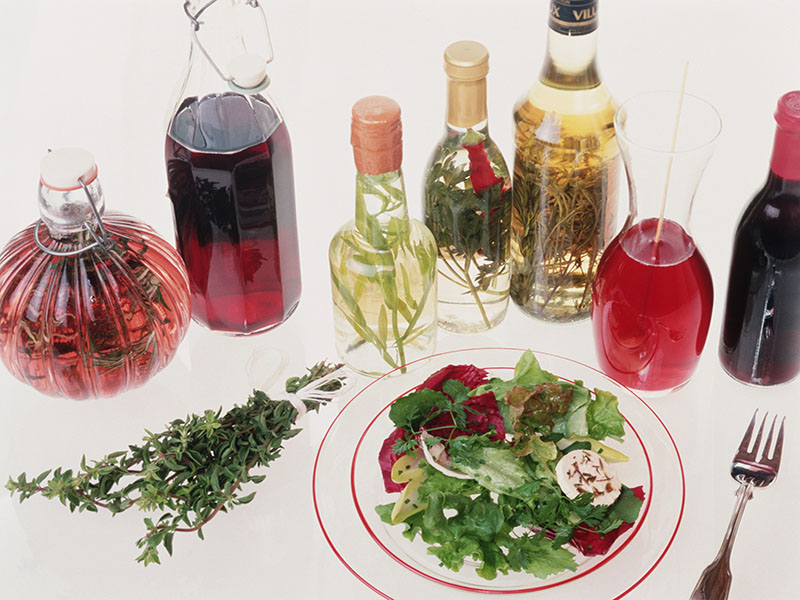Manténgase sano!

- Posted February 15, 2019
How to Choose the Right Cooking Oils
Oils are one of the most widely used ingredients in cooking and are healthy alternatives to butter and margarine.
All cooking oils, including olive, canola and peanut oil, contain 14 grams of total fat per tablespoon, and roughly 120 calories. So measure amounts carefully because even though some fat is essential for good health and these are excellent choices, they're still high in calories.
For high-temperature cooking like stir-fries or when searing meat, use high smoke-point oils like canola, grapeseed and safflower oils. For sauteeing vegetables at medium heat, use extra virgin olive oil or avocado oil, which has gotten popular in recent years. Since baking uses gentle heat, you can go with any oil you like. For cake and brownie recipes, try replacing butter with light olive oil, which has much less saturated fat but is still light in flavor.
Though all oils are great for salad dressings, try aromatic nut oils, like walnut oil or hazelnut oil, and seed oils, such as pumpkin seed oil and flaxseed oil, for a flavor twist. Keep them refrigerated to prevent them from going rancid -- they're very delicate. Let them come to room temperature if they thicken in the fridge.
Here's an easy dressing recipe that you can use on any side salad or over cold, chopped vegetables. It works especially well on peppery-flavored watercress.
Watercress Salad
- 2 tablespoons walnut oil
- 1 teaspoon Dijon mustard
- 1/4 teaspoon garlic salt
- 1 tablespoon balsamic vinegar
- 8 ounces watercress
- 16 walnut halves, coarsely chopped
Whisk oil, mustard and garlic salt in a large bowl. Add the vinegar and whisk again. Add the watercress and toss well. Divide among four plates and top with equal amounts of chopped nuts.
Yield: 4 servings
More information
The Cleveland Clinic has a primer on cooking with heart-healthy oils.
SOURCES: Rebekah Levine Coley, Ph.D., chair, counseling, developmental and educational psychology, Boston College Lynch School of Education and Human Development, Chestnut Hill, Mass.; Linda Richter, Ph.D., director, policy research and analysis, Center on Addiction, New York City; American Journal of Drug and Alcohol Abuse, Feb. 15, 2019

